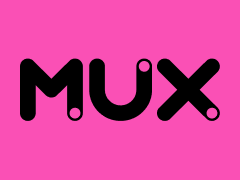By John Gruber

Mux — Video API for developers. Build in one sprint or less.
What’s Next for Nokia?
Wednesday, 15 September 2010
Here’s the situation facing Nokia’s new CEO, Stephen Elop:
Nokia needs to settle on one software platform for mobile devices, very soon.
None of their Symbian-based stuff should be the choice.
The only other thing they have in-house is MeeGo.
It’s too late for them to start over from scratch, and I don’t think they have the software chops to do so even if they did have time.
So it’s either MeeGo, or something from outside the company. The top two choices: Android and Windows Phone 7. Given that Elop comes to Nokia from Microsoft has led some to wonder whether they’ll go with Windows Phone 7.
Nokia’s problem — and I’ve heard this same story from at least half a dozen former and present Nokia employees who read DF — is that their handset business is fundamentally based around hardware teams. When they decide to make a phone, they put together a hardware team for that model, and that team makes all decisions. That’s why they have no cohesive software strategy. Nokia sees software as one component in a hardware-based view of the industry. Here’s a description from an email sent to me by a former Nokia software engineer:
Here’s the problem: Hardware Rules at Nokia. The software is written by the software groups inside of Nokia, and it is then given to the hardware group, which gets to decide what software goes on the device, and the environment in which it runs. All schedules are driven by the hardware timelines. It was not uncommon for us to give them code that ran perfectly by their own test, only to have them do things like reduce the available memory for the software to 25% the specified allocation, and then point the finger back at software when things failed in the field.
In addition, I read their “competitive analysis” of the iPhone. It was a short powerpoint deck that proceeded to lay out all of the reasons why Nokia did not have to change what they were doing at all. They even included “developer annoyance at the App Store submission process” as a reason why the iPhone would ultimately fail (this was around the time that the 3GS was released, so they had no excuse).
Bottom Line: Nokia is a hardware company that hates software.
Bringing in an executive from a pure-software company like Microsoft may well be the smartest thing the Nokia board could have done. Judging by some of the stories coming out of Nokia World this week, though, it seems as though the message hasn’t yet worked its way through the ranks. E.g., “Nokia Expects Hardware Design to Attract Smartphone Customers”:
Leading handset maker Nokia, which has struggled against competitors in the smartphone segment expects hardware design to play an important role in attracting smartphone customers.
Marko Ahtisaari, Company’s design strategy director expressed that the smartphone is now attracting user beyond tech-savvy software enthusiasts who want to express their personality with a unique and good-looking device and thus the hardware design will be important in the segment.
Sure, that’s the ticket.
None of Nokia’s options seem appealing, though. Symbian is crufty and has no legs. MeeGo isn’t ready, and has the whiff of vaporware. But going with Android or Windows Phone 7 reduces Nokia to the role of a commodity OEM, a peer not to Apple or RIM but rather merely to companies like HTC and LG. Nokia needs a platform that makes people want to buy a “Nokia phone”, not an “Android phone” or “Windows phone”.
It’s not that hardware isn’t important. But everything starts with the software platform.
